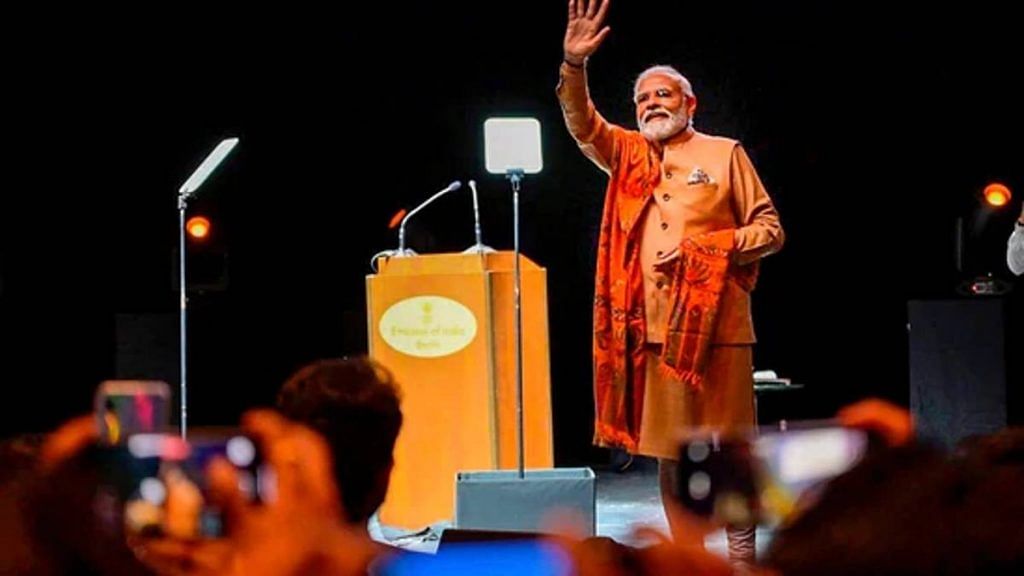Media reports of the Narendra Modi government reviewing issues connected to India’s major and boldest structural defence reforms in the post of the Chief of Defence Staff surfaced last week. It appears to be the canary in the coal mine. Some forces, probably the Ministry of Defence, have probably convinced the leadership of the need for a review. It is worth recalling here that the reforms were not initiated by it. The call was probably a Prime Minister’s Office initiative for which PM Modi himself deserves the credit, for it was not an easy decision to take in the face of entrenched interests and beliefs. The structural change was intended to significantly improve the military effectiveness and optimise the utilisation of scarce resources. The CDS was also politically mandated to execute the reforms.
Execution of such complex reforms cannot be undertaken if underlying the organisational structure is headless. Yet it has been so for more than five months since the death of Gen Bipin Rawat, India’s first CDS. Since the reform was approved by the Cabinet Committee on Security (CCS), the highest political decision-making body in India, a review should be undertaken only after their concurrence. Assuming that such concurrence was taken, the long period of not appointing a CDS seems quite inexplicable, unless, of course, the absence of a CDS and the resultant status quo suits the interest groups.
It seems to the present writer that civil-military politics is casting a heavy shadow over PM Modi’s bold and significant defence reform. What we are witnessing is the unrolling of frictions that structural changes naturally generate. In the MoD, this would mostly be between the military and bureaucrats with both vying for political support. In the case of the non-appointment of the CDS, bureaucrats seemed to have prevailed. Also, among the armed services, the differences cannot be resolved without the CDS.
Also read: Modi govt must utilise the pause period in CDS Rawat’s replacement and fine-tune the role
Why CDS is vital
If the defence reforms approved are thwarted or diluted, it could be a major blow to India’s military effectiveness. The military authorities, by and large, have welcomed the reforms, though they might hold differences in the details of the structural aspects of joint/theatre commands. The fact that the Indian armed forces have 17 commands with Service-specific identities is testimony to the need and urgency for the theatre command system to be created. Without a CDS, who was also given the responsibility to ideate the new system, there is no possibility of deciding on architectural design, which is a necessary first step in a long process.
Indeed, the CDS does not have direct command responsibility. But to say that he has no operational responsibility may be an argument that overlooks that he is also the Permanent Chairman of the Chiefs of Staff Committee, who, apart from being the head of the armed forces, is also the military head of India’s nuclear weapons command and control structure.
The point is that, apart from the responsibilities for change heaped onto the CDS, they are a vital link between the policy, strategy and execution of the functions related to ongoing national security challenges. It was probably too much to expect that the CDS could carry the burden of running the show in challenging geopolitical circumstances and also bring about the politically mandated changes in the face of disagreement within the MoD and the three Services. There is certainly sufficient room to explore the need to relieve the CDS of evolving the new structure. The question is—who should be responsible for the evolution?
Also read: 8 years back, Modi promised to transform India’s military. Today, the plan is in disarray
Appoint a commission
For sure, the group responsible should not be part of the MoD. Because the MoD and the armed services are part of the problem. Therefore, knowledge and experience resting in a group of persons exogenous to the MoD must be constituted. It must be a commission tasked to evolve the new structures and oversee their creation. The head of the commission must be a political personality, preferably an elected leader, who fulfils the knowledge and experience criteria. The commission must function under the NSC with the NSCS acting as the coordinating mechanism.
The commission will require vital inputs from the CDS as the Joint military head. In the absence of the CDS, the military will be seriously handicapped in the tussle for convincing the political leaders of the way ahead. Civilian bureaucracy could prevail, and what could emerge is a pale version of the originally proposed reforms. India’s efforts at improving its military effectiveness would then have been sacrificed to a military-bureaucracy power play. The political leadership must not allow such power play to sabotage its reforms. The price will eventually be paid in terms of national security. And that is a price that the nation can ill afford.
The commission should even explore the possibility of incorporating the reforms in an Act of Parliament like the Goldwater-Nichols Act in the US. This issue has gained importance, as it seems that Gen Rawat’s death is being exploited by those who were unhappy with the reforms that were, in reality, thrust onto the MoD by the PMO. The empire has struck back and the ball is in the Prime Minister’s court. He must stay his course and appoint a CDS along with a commission as suggested.
Lt Gen (Dr) Prakash Menon (retd) is Director, Strategic Studies Programme, Takshashila Institution; former military adviser, National Security Council Secretariat. He tweets @prakashmenon51. Views are personal.
